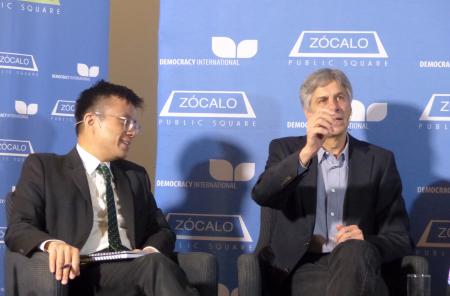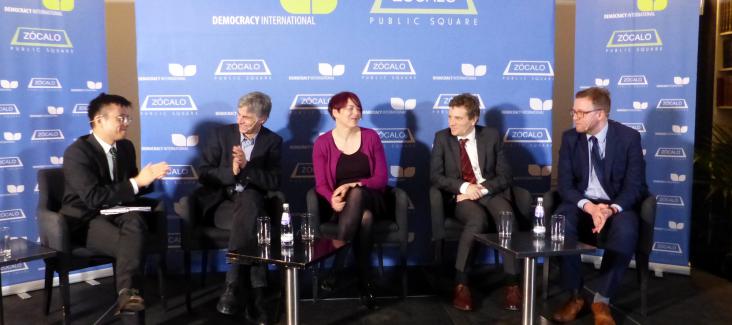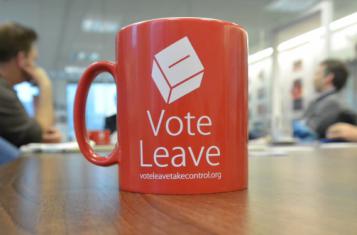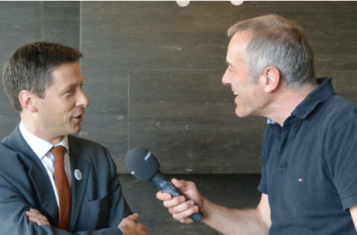Laura Cram, who is a professor of European Politics and the Director of Neuropolitics Research at the University of Edinburgh, stressed that identity was a crucial factor playing into people's decision whether to vote yes or no in the referendum. These choices were not purely rational but based on emotions also. The fact that the Conservative Party was divided on the issue of the referendum made the political debate around the referendum more complex.
Damien Chalmers, EU law professor at the London School of Economics, focussed his remarks on three aspects: Citizens were going to take their decision on the question of what the EU had provided for small and medium enterprises and workers. Another point was democratic authority: Britons needed to be allowed to have political input. Thirdly, the Brexit referendum was an issue of political community and citizenship, citizens needed to belong to a community.
Gerald Häfner, speaking on behalf of Democracy International, questioned how humans could find their identity in a globalised and interdependent world in which some decisions could not be taken anymore at national level. Transnational democracy was the answer to this globalisation of political decision-making.

With regards to the upcoming "Brexit" referendum, Häfner stressed that there should not only be a referendum debate in the UK. Citizens throughout the whole of the EU ought to discuss the EU's currently pressing issues, and they should decide which powers to transfer from the national to the European level. He presented Democracy International's demand of an EU Convention, an assembly of politicians, citizens and academics alike, to be followed by an EU referendum, all crucial keys to solving the EU's democratic deficit.
Stephen Booth of the think tank Open Europe raised the question what leaving meant from an economic perspective and said that in the end, people were also going to decide whether to opt for a Great Britain trading freely in a globalised world or whether to resign to a "Little Britain" focussed on its own market.
Sewell Chan, US American and news editor of the New York Times in London, moderated the panel discussion. It was followed by questions and statements from the audience. Similarly to the speakers on the panel, the guests expressed the fact that the upcoming referendum on 23 June was a vote on identity and the future of Europe. Regardless of the outcome of the referendum, its repercussions would be huge both for Great Britain and Europe.
Text and photos by Cora Pfafferott




